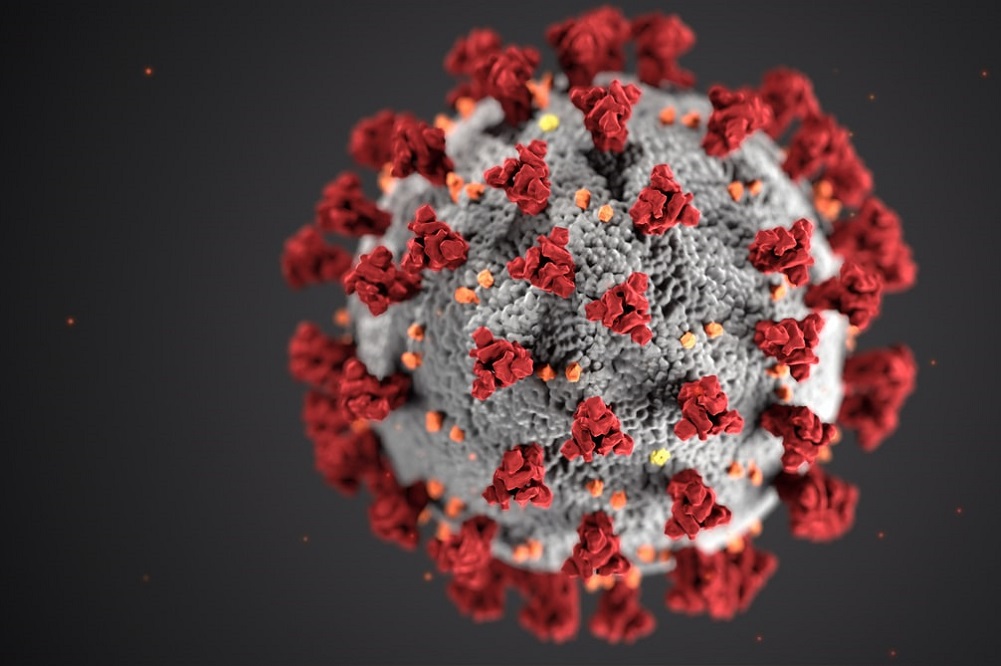Scientists reveal make-up of SARS-CoV-2 outer envelope for first time

Scientists from Cardiff University have made a breakthrough in the study of coronavirus by detailing the molecular make-up of the fatty outer envelope of SARS-CoV-2 for the first time – and say it could prove an important new target for antivirals.
The team’s work on the viral lipid envelope showed it had significant differences to healthy host cell membranes, suggesting the potential for it to be selectively targeted.
The research is published today in the Journal of Lipid Research.
“While vaccines and antivirals have targeted proteins or the replication cycle of SARS-CoV-2, there has been little research into the lipid envelope to date,” said Professor Valerie O’Donnell, a lipid biochemist and co-author on the study from Cardiff University’s School of Medicine.
“Our study has mapped this essential viral component – indeed, there has been very little research into any viral lipid envelopes so far. Addressing this knowledge gap could enable selective therapeutic targeting that avoids damaging host membranes. We also suspect the membrane won’t be impacted by mutation of the virus, unlike spike proteins, so it would be a consistent target.”
The Cardiff team used mass spectrometry to create a detailed map of the little-understood lipid envelope and found it was comprised mainly of phospholipids but very little cholesterol, unlike host cell membranes. The findings suggest there is potential to target the virus in the oral cavity with therapeutics without collateral damage to the body’s own cells.
Oral rinse
As part of the same study, they carried out a small-scale clinical trial in hospitalised COVID-19 patients to test whether oral rinses containing lipid disrupting chemicals called surfactants could reduce infectivity in the mouth.
In the trial, 27 hospital patients with PCR-confirmed COVID-19 were given one of four different types of oral rinse, including two containing cetylpyridinium chloride (CPC), one containing povidone-iodine and another containing saline.
The most effective contained CPC and isopropyl myristate – a single 30-second rinse with this formulation in seven patients eliminated the virus in the saliva by 99.99% at one minute, and by 99.8% at 60 minutes. In three of the seven patients (around 40%) no live virus was detected in the saliva at any time after the initial rinse.
Other formulations containing compounds such as povidone-iodine or saline had little to no effect, while the rinse containing CPC and benzoate did not show a persistent effect, suggesting formulation is “critical”.

Professor Richard Stanton, co-author of the study from Cardiff University’s School of Medicine, said: “The findings of our clinical trial suggest the lipid envelope could be targeted by specific formulations of oral rinses.
“Our results suggest certain mouthwashes could play a role in limiting COVID-19 exposure in healthcare settings, for example, destroying the virus for sufficient time to enable a dental or oral examination. It could also be a useful component of infection prevention and control for other respiratory enveloped viruses, such as influenza.”
Professor David Thomas, co-author of the study from Cardiff University’s School of Dentistry, said: “Larger clinical trials and population-based studies are warranted to determine if oral rinses have any impact on COVID-19 transmission in practice.
“We would encourage people to always use mouthwash safely and as per the manufacturer’s guidelines.”
An important caveat, say the researchers, is that mouthwash cannot target any virus in the lower respiratory tract, and it remains unclear whether virus that transmits to others arises from the upper or lower respiratory tract.
The research was funded by UK Research and Innovation through the UK Coronavirus Immunology Consortium, Biotechnology and Biological Sciences Research Council, the Welsh Government Ser Cymru Programme and the Wellcome Trust.
The clinical study was part-funded by Venture Life Group plc, the manufacturer of Dentyl Dual Action (CPC and isopropyl myristate) and SCD Ultra (CPC and benzoate), but the company had no input in design, data analysis or drafting of the research paper. The other two brands were Videne (povidone-iodine) and Normasol (saline).
Support our Nation today
For the price of a cup of coffee a month you can help us create an independent, not-for-profit, national news service for the people of Wales, by the people of Wales.




